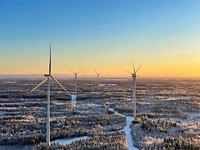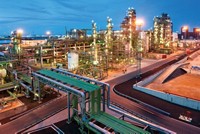Advertisement
Grab your lab coat. Let's get started
Welcome!
Welcome!
Create an account below to get 6 C&EN articles per month, receive newsletters and more - all free.
It seems this is your first time logging in online. Please enter the following information to continue.
As an ACS member you automatically get access to this site. All we need is few more details to create your reading experience.
Not you? Sign in with a different account.
Not you? Sign in with a different account.
ERROR 1
ERROR 1
ERROR 2
ERROR 2
ERROR 2
ERROR 2
ERROR 2
Password and Confirm password must match.
If you have an ACS member number, please enter it here so we can link this account to your membership. (optional)
ERROR 2
ACS values your privacy. By submitting your information, you are gaining access to C&EN and subscribing to our weekly newsletter. We use the information you provide to make your reading experience better, and we will never sell your data to third party members.
Business
Business Roundup
January 29, 2023
| A version of this story appeared in
Volume 101, Issue 4
Sabic has set a goal of offering 1 million metric tons (t) of recycled and biobased products annually by 2030. The company says it is planning a new recycling investment that will alone have 200,000 t of capacity per year.
Perstorp has named Ib Jensen CEO, effective March 1. Jensen, who has been the chief financial officer of the Swedish specialty chemical maker for the past year, will take over from Jan Secher, who is stepping down after 9 years as CEO.
American Elements has expanded capacity for organometallics, which are used in chemical vapor deposition and in petrochemical catalysts. The expansion includes lanthanum and cerium 2-ethylhexanoate, as well as hafnium and zirconium acetylacetonate.
Liberation Labs, a company that makes alternative proteins, plans to build a 600,000 L fermentation facility in Indiana, which it calls the first large, purpose-built, precision fermentation plant in the US. The company says most large biomanufacturing facilities are in Europe.
Braskem has signed a 10-year agreement to buy recycled feedstocks that Nexus Circular will produce in a future pyrolysis plant. Braskem will use the feedstocks to make polypropylene.
Element Resources plans to build a facility in Lancaster, California, capable of producing 20,000 metric tons of green hydrogen per year. The project, which is expected to begin operations in 2025, would primarily serve customers in Southern California.
Engie, a French energy company, has agreed to supply Arkema with 300 GW h of biomethane in France each year for the next 10 years. Arkema will use the biomethane to reduce the carbon footprint of its nylon 11 products.
Faibrics has raised about $24 million to develop its technology for converting carbon dioxide into polyester. The French start-up says it intends to open a 1-metric-ton-per-day demonstration plant by 2026.




Join the conversation
Contact the reporter
Submit a Letter to the Editor for publication
Engage with us on Twitter